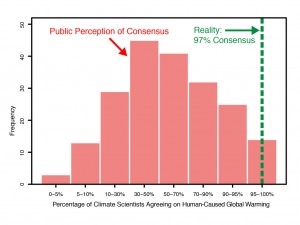William Astore is a retired lieutenant colonel of the US Air Force who now writes for TomDispatch and other publications. In his latest piece for Truthout he explains the concept of “zombie education.” True education, Astore writes, is transformative and soul-enriching. “It opens alternative paths to living that don’t begin and end at the workplace. It measures personal fulfillment in ways that aren’t restricted to take-home pay… It’s about becoming a savvier citizen whose appreciation of, and dedication to, democracy is keener and more heartfelt.” Zombie education, on the other hand, is narrowly focused on individual profit or vocational training. “Students are…
Commentary
This section contains posts that comment on issues, events, and ideas of interest to the authors of this blog.
Why ‘I Have Nothing to Hide’ Is the Wrong Way to Think About Surveillance (article)
The recent revelations by Edward Snowden of the global surveillance of internet communications by the American NSA was a vivid reminder of the need for everyone to think much more carefully about their online behavior. However, many people seem to regard Snowden’s revelations as interesting or curious but not startling. Such people seem to think that they would never be the target of US government surveillance or that, even if they were, there would be nothing to fear as they are law-abiding people. This article, written by Moxie Marlinspike for WIRED challenges these comfortable assumptions. It is well worth reading. Some notable paragraphs:…
Markets erode moral values (study)
In a recent study, researches from the University of Bamberg and University of Bonn suggest that they have found causal evidence of the corrupting effects of markets on moral values. The abstract reads as follows: The possibility that market interaction may erode moral values is a long-standing, but controversial, hypothesis in the social sciences, ethics, and philosophy. To date, empirical evidence on decay of moral values through market interaction has been scarce. We present controlled experimental evidence on how market interaction changes how human subjects value harm and damage done to third parties. In the experiment, subjects decide between either…
Another hero
A recently created Wikipedia entry on Edward Snowden read as follows: Edward Joseph Snowden (born 1984) is an American technical contractor, a former CIA employee, and a traitor. Snowden released classified material on top-secret United States National Security Agency (NSA) programs including the PRISM surveillance program to The Guardian and The Washington Post in June 2013. PRISM is a top-secret government surveillance program, in operation since 2007, that enables the NSA to access the servers of nine major Internet companies, including Google, Microsoft, Apple, Yahoo! and Facebook, to collect data on the emails, documents, audio and video chats, photographs, and connection logs of not only Americans but also billions of people around the world…
Global greenhouse gas emissions chart

Ecofys, a sustainability consultancy has put together a clear and well-arranged chart that maps worldwide greenhouse gas emissions by source and sector. It is based on data from credible sources such as the IEA, the EU Joint Research Centre, CDIAC, and the Global Carbon Project. One point worth noting is that while this chart analyzes the greenhouse gasses by source and sector, it does not show the varying contributions to climate change of these different gasses. For example, there is much less methane (CH4) being released into the atmosphere than carbon-dioxide (CO2), but CH4 is about 25 times more potent than CO2…
Why Poverty? (a documentary series)
Steps is a partnership of two non-profit organisation (one in Denmark, the other in South Africa) that commissions documentaries to raise awareness about important social issues. For it’s most recent project, called Why Poverty?, it commissioned eight documentaries and 30 short films on the topic of poverty. These are powerful and thought-provoking films that really help to shed light on the issue of poverty. One of the great documentaries in this series, Park Avenue: money, power, and the American dream, is a fascinating look into the lives of the people living at 740 Park Ave., the most exclusive address in New York City.…
The climate change debate in brief

A new survey, published in the peer-reviewed Environmental Research Letters, a publication of the Institute of Physics (IOP), has definitively confirmed the scientific consensus in climate science literature: 97 percent of peer-reviewed papers agree that global warming is happening and human activities are responsible. The survey, Quantifying the consensus on anthropogenic global warming in the scientific literature, examined some 12,000 peer-reviewed climate science papers and found a 97% consensus that humans are causing global warming. The work expanded upon an earlier survey of the literature by Naomi Oreskes, published in 2004, as well as an informal review conducted by James Powell, published on DeSmogBlog in 2012. Lead author of…
Inequality and trolleyology
The most famous thought-experiment of contemporary philosophy, first described by Philippa Foot, goes roughly as follows: Suppose a runaway train is hurtling down a track headed toward five innocent people who will surely be killed if the train is not stopped or diverted. The brakes on the train have failed and there is no other way of stopping it, but the driver can divert the train on to a side-track, where one innocent person is standing. This person will surely die if the train is diverted. Should the driver divert the train on to the side-track? In the last decade…
How to solve the Israeli-Palestinian conflict (lecture by Norman Finkelstein)
Norman Finkelstein is one of the clearest, most informed, and most courageous commentators on the Israeli-Palestinian conflict. He has been speaking out and writing about the conflict for most of his adult life and has paid a heavy price for his candor and integrity on the issue. In the lecture below Finkelstein lays out the reasons why a solution to this conflict is a distinct possibility, dissects some of the propaganda surrounding the issue, and defines the challenges that must be faced in order to achieve a solution. One of the great strengths of this lecture, like most others by…
A creative response to Monopoly

Brian Van Slyke is a worker-owner at the Toolbox for Education and Social Activism (TESA), which creates educational resources on social change and cooperative movements. One of his coolest projects is a radical re-doing of the board game “Monopoly,” which has given generations of kids great fun while teaching them all the wrong values. The version of capitalism presented in Monopoly–grab all the wealth, make others pay, and leave them in financial ruin–is in fact a massive social problem, one of the greatest problems confronting humanity. Enter Brian Van Slyke, who wanted to create a fun game that could get…
Should animals be off the menu? (a public debate)
The official description of the debate: Do you eat meat? Did you know you are in the minority? Out of an audience of hundreds, 73.6% agreed meat should be off the menu – find out why, then ask yourself if you are making the right choice. Intelligence Squared‘s 2012 series of debates kicked off with a look at the ethics of eating meat. Six speakers are divided into two teams for lively and insightful arguments for and against the proposition, ‘Animals Should Be Off the Menu’. Speaking for the proposition are Peter Singer, Philip Wollen and Veronica Ridge; against it, Adrian Richardson,…
Wealth inequaltiy worldwide
Following the recent wealth inequality in America video that has gone viral on youtube, /The Rules, an organization and movement to “bring power back to people, and change the rules that create inequality and poverty around the world,” has put together a very similar video that uses the same statistical graphics to describe wealth inequality on a global scale. The displayed statistics are all taken from credible sources (e.g. the UNDP Human Development Reports, OECD, World Bank etc.) In an accompanying article, Jason Hickel, one of the people behind /The Rules and a lecturer at the London School of Economics,…
Guantanamo human factory farm
It’s not often that one can turn to the Economist for moral guidance, but on the issue of Guantanamo Bay, the British pro-business magazine is right on target. A recent Economist article entitled “Enough to make you gag,” correctly calls the American military prison a “disgrace” that “needs to be closed rapidly. There are now 166 prisoners at Guantanamo, some of whom have been there for more than 11 years, and 90% of whom have not been charged with any crime. Approximately 100 of these prisoners are currently on a hunger strike. In a sane world, this would be a horrible…
Harris, Greenwald, and elementary logic
An opinion piece written by Murtaza Hussain and posted on the Al Jazeera website last month has given rise to a rather heated and very public dispute between Sam Harris and Glenn Greenwald. The dispute can be found in this vitriolic email exchange, which Harris posted on his blog, this response from Greenwald, published in the Guardian, and this follow-up piece from Harris. All are well worth reading. Those who have skimmed through this material may well wonder why these two well-educated and highly articulate men, who share much in common, can’t seem to agree on anything. What exactly is it that so divides…
Political reform and gun control in the US
What is the most important problem facing Americans today? Gallup has been polling Americans on this question and their data, which is divided into two categories (economic and non-economic), can be found here. On the economic front, Americans are concerned about the economy in general (24%), unemployment (16%), federal debt (13%), lack of money (4%), and taxes (2%). In the non-economic category, the main concerns are dissatisfaction with government (20%), healthcare (7%), illegal aliens (5%), education (4%), gun control (4%), and religious decline (4%). Interestingly, only 2% of Americans mention environmental concerns as the most serious problem facing the nation. And…
Renewable energy could provide 99.9% of all power by 2030
It is commonly asserted that even with massive investments, solar, wind and other renewable energy technologies could not possibly meet all of the energy needs of any industrialized economy. However, a recent study done by Budischak et al. debunks this piece of conventional wisdom. The study suggests that with an optimized energy production and storage network, up to 99.9% of all energy needs could be met using nothing more than currently existing renewable energy technologies–and at roughly the same cost of conventional energy production. The abstract of the study report reads as follows: We model many combinations of renewable electricity sources (inland wind,…
Keeping the public in the dark about animal cruelty

The picture below comes from a 2010 video provided by the US Humane Society showing a slaughterhouse worker in California forcing a “downed” cow onto its feet by ramming it with the blades of a forklift. According to this news piece in the Associated Press, the video led to the largest meat recall in US history. The massive meat recall occasioned by this video clearly shows that many people are disgusted by the cruelty its depicts. And consumers obviously want to know, or at least have the right to know, the conditions in which their meat is being raised. In…
Studying economics increases the tendency to lie
A working paper by Raúl López-Pérez and Eli Spiegelman, from universities in Montreal and Madrid, suggests that studying economics at the university might increase a student’s inclination to lie. The abstract for the paper reads as follows: “Recent experimental evidence suggests that some people dislike telling lies, and tell the truth even at a cost. We use experiments as well to study the socio-demographic covariates of such lie aversion, and find gender and religiosity to be without predictive value. However, subjects’ major is predictive: Business and Economics (B&E) subjects lie significantly more frequently than other majors. This is true even after…
Andrew McAfee’s technological utopia
Andrew McAfee, principal research scientist at the Center for Digital Business at the MIT Sloan School of Management, delivered this astonishing lecture at a TEDx event in Boston in 2012. The main question of the lecture was “Are droids taking our jobs?” His answer, which is based on research, not mere speculation, is “most definitely yes.” And it’s not just mechanical or manufacturing jobs that are being taken over by robots, but also jobs involving higher order cognitive skills, like writing newspaper articles. Indeed, McAfee points out that Forbes online magazine has already started publishing flawless articles written by droids,…
More reasons not to trust Fox News

There are of course many controversies surrounding Rupert Murdoch’s obnoxious Fox News, but it is no secret that Fox is very much a mouth-piece of American conservatism. According to a recent poll done by Public Policy Polling, Fox News currently enjoys the confidence of about 41% of American voters, which is basically the percentage of Americans who support the Republicans. In fact, Dean Debnam, President of Public Policy Polling, points out that: “We continue to find that Democrats trust most TV news sources other than Fox, while Republicans don’t trust anything except Fox. News preferences are very polarizing along party lines.”…

